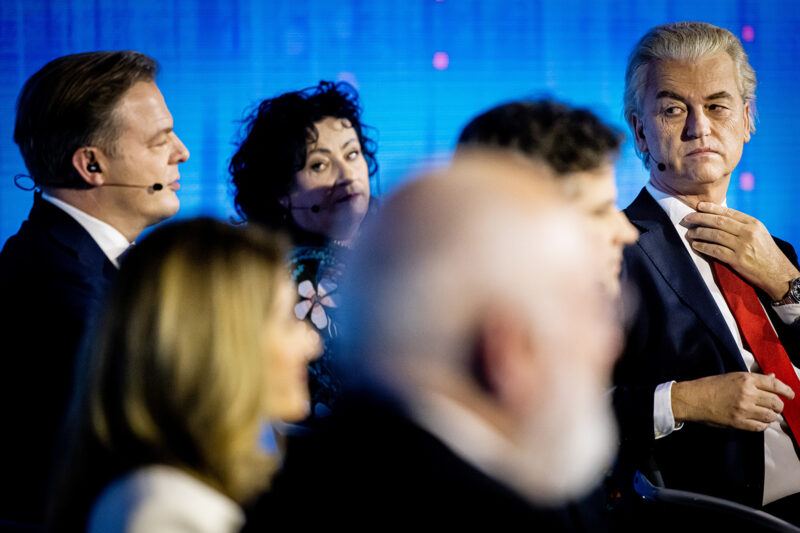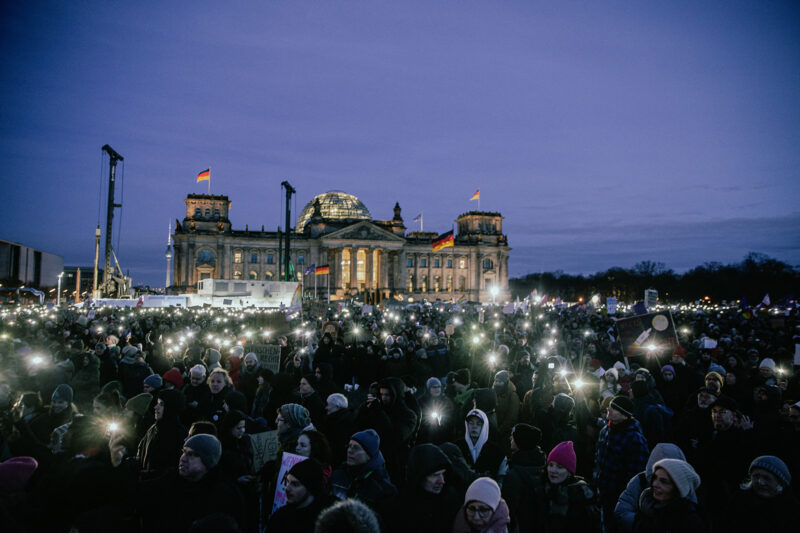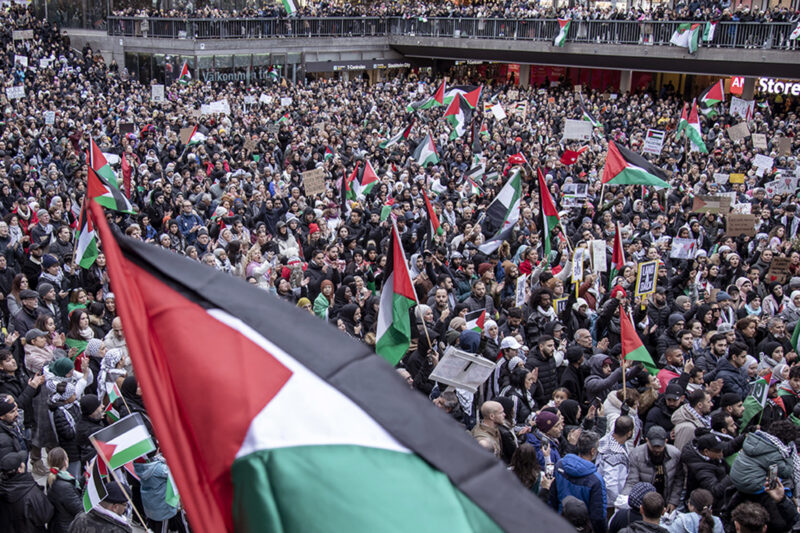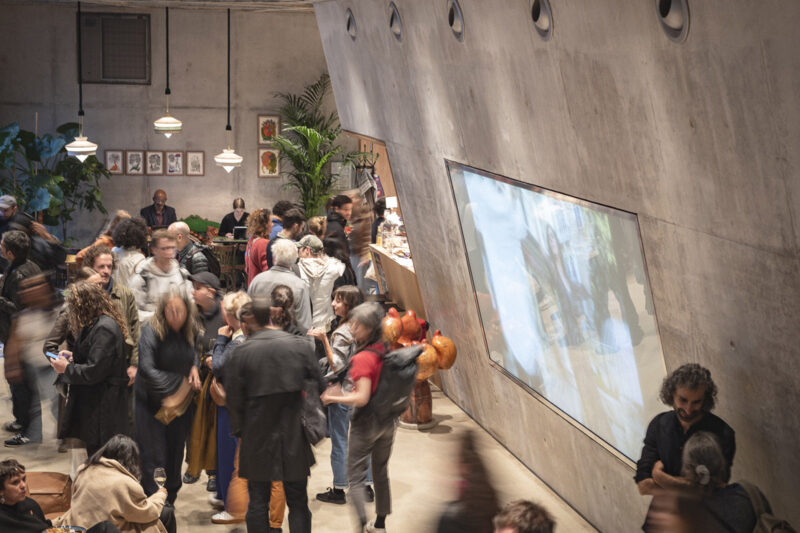The crisis in Gaza has exposed the EU’s credibility gap
The last 12 months have seen crackdowns on pro-Palestinian support and a surge in Islamophobia. But European Muslims can find hope in allying with those pushing for peace
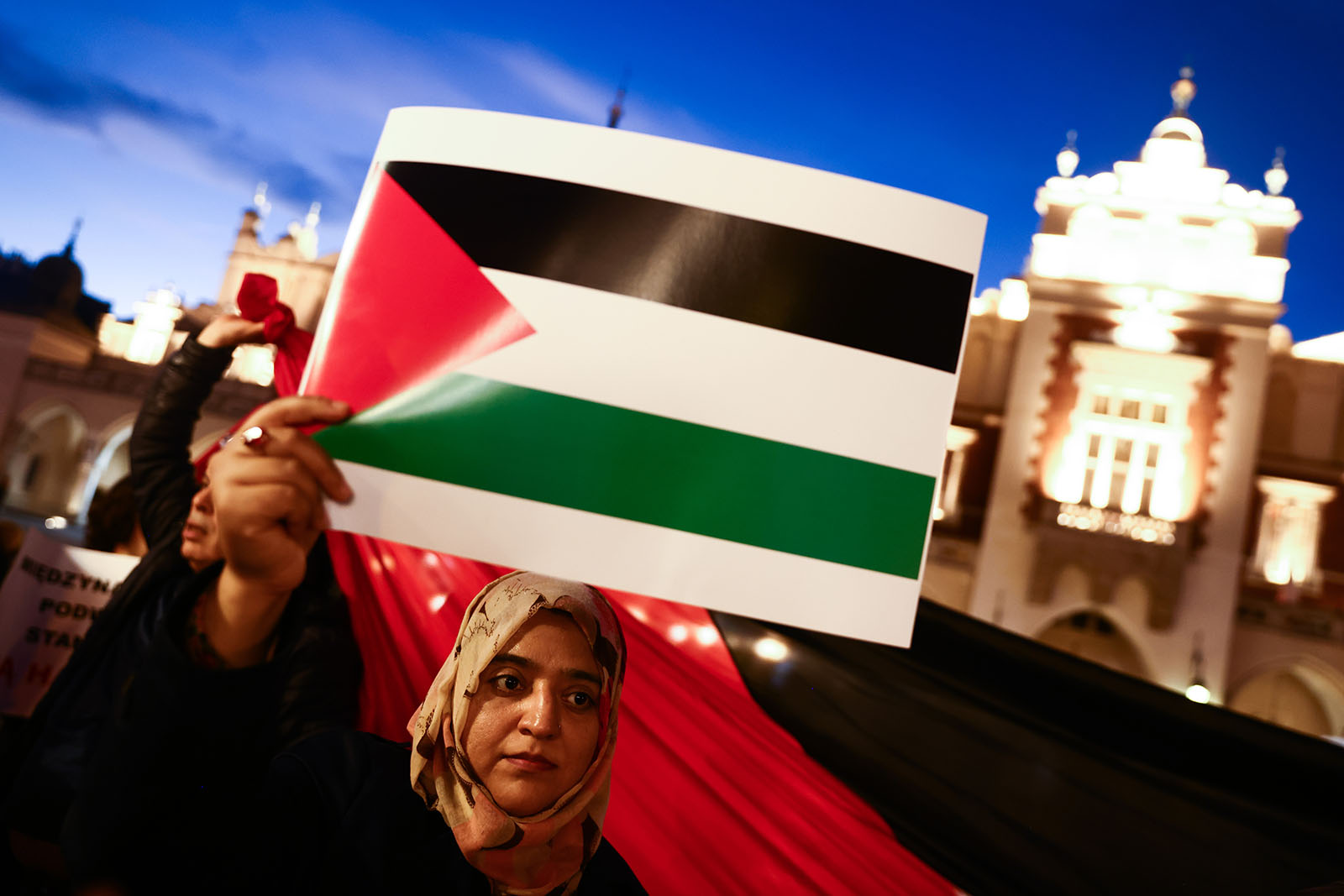
Within days of the 9/11 attacks, EU leaders met in Brussels for a hastily organised summit to pledge their support for the US and make the fight against global terrorism a priority. The EU leaders also expressed their solidarity with Muslims, rejecting “any equation of groups of fanatical terrorists with the Arab and Muslim world”.
But for many of Europe’s 25 million Muslim citizens, the reality turned out to be starkly different. As the EU’s Monitoring Centre on Racism and Xenophobia warned in May 2002, European Muslims were facing increased hostility as well as “retaliatory attacks” on mosques and Islamic cultural centres. “A greater sense of fear among the general population has exacerbated already existing prejudices and fuelled acts of aggression and harassment in many European member states,” noted the report.
So at the start of the Israel-Hamas war last October, I advised EU officials that they must take quick action to bring communities together to pre-empt the inevitable rise in Europe-wide Islamophobia and antisemitism. But as religious hate crimes soared, these warnings had little impact in an environment where far-right European parties were gaining political ground.
The sad reality is that today, there appears to be a profound disconnect between EU institutions, national governments and Muslim citizens — and the current wave of religious hatred is more extreme and personal than in the past.
Many Muslim friends and colleagues tell me that attacks on mosques, European governments’ attempts to silence calls for a Gaza ceasefire, and police violence against pro-Palestine demonstrators has left them feeling angry, frustrated and vulnerable. But there is something more: many of us also feel a deep sense of betrayal because we believed in the EU’s claim to be a champion of human rights and the international rules-based order. What we see instead is a pro-Israel bias among leading EU policymakers and an apparent disregard for the rising death toll in Palestine.
At a conference on global economics in Italy on 7 September, Queen Rania of Jordan spoke for many when she voiced her dismay at the EU’s double standard in imposing tough sanctions on Russia in response to its war with Ukraine, while refusing to cut off trade, investments and arms supplies to Israel. Some EU officials, including outgoing foreign policy chief Josep Borrell, have voiced similar concerns, advising European governments to show “more empathy” for Palestinians. But neither he nor other European policymakers have paid enough attention to just how deeply the EU’s failure to call out Israel’s actions is impacting European Muslims.
My friends and colleagues tell me that anti-Muslim racism over the past 12 months has exacted a huge toll on their personal and professional lives. Some openly question their identity and safety in Europe. They worry for the future of their children as anti-Muslim hate speech, once confined to bigots and fringe politicians, becomes widespread. Statements of concern issued by the EU about tackling anti-Muslim racism have provided scant comfort.
For the last year, human rights groups, including Amnesty International, have warned EU governments that restrictions placed on people’s right to protest Israeli military aggression — including bans on certain chants and the carrying of Palestinian flags — are in breach of Europeans’ freedom of expression. Many EU states now too easily equate any criticism of Israel’s actions in Gaza with antisemitism.
Despite Germany’s dark past and concerns by antisemitism commissioner Dr Felix Klein about the threat to Jewish life posed by the resurgence of the German far right, I have watched in dismay as leading German politicians like vice-chancellor Robert Habeck have called on German Muslims to condemn the actions of Hamas. In France, Jordan Bardella, president of the far-right French National Rally, has falsely attributed a surge in antisemitism to the alleged rise of “political Islam”. Nativist Austrian politicians from Austria’s far-right Freedom party (FPÖ) have done the same.
Some of these conditions existed even before the events of 7 October 2023. Charges of antisemitism in 2021 against five Arab and Palestinian journalists, which led to their dismissal by the German state broadcaster Deutsche Welle, prompted Maram Salem, one of the reporters, to say that “writing about Israeli rights violations, you also get accused of antisemitism”.
In another prominent case, the French government revoked the Simone Veil award, which honours people fighting for women’s causes, to French-Moroccan journalist Zineb El Rhazoui, for retweeting a journalist’s post comparing the unfolding Israeli war on Gaza to Nazi Germany’s holocaust. Valérie Pécresse, president of the regional council of Île-de-France, said El Rhazoui’s comments had “terribly hurt” French people who had lived through the Holocaust.
Then there are the dual crises of online disinformation and the collective punishment of Muslim migrants. In August, the fatal stabbing of an 11-year-old boy in central Spain sparked false claims on social media that the attacker was a Muslim immigrant of north African descent, despite official statements that the perpetrator was a 20-year-old Spaniard. When three people were killed in a knife attack by a Syrian asylum seeker in Solingen in August, German chancellor Olaf Scholz stepped up deportations and slapped checks on Germany’s borders with other EU states, effectively stigmatising all migrants as potential terrorists.
I take comfort from the fact that despite government crackdowns, Europe-wide demonstrations in support of Palestinians in Gaza have continued and leaders in Spain, Ireland, Slovenia and Belgium — alongside elected allies in the European parliament — are doubling down on demands that the EU complies with provisional rulings of the International Court of Justice, including its recent advisory opinion that member states must not recognise, aid or assist Israel’s illegal occupation of Palestine.
It is also important that many civil society groups, politicians and faith leaders are working to combat anti-Muslim racism and even joining forces on issues like the decolonial movement. As Rashid Khalidi, the Palestinian-American historian of the Middle East and the Edward Said professor of modern Arab studies at Columbia University, said recently, Palestine is “the last colonial war in the modern age”.
Both struggles are gaining popularity, especially among younger generations. This may make the European far right and some EU governments uneasy, but change will not come easily or quickly. At the end of a traumatic year, I take solace in such actions since they not only strengthen global support for Palestine, but also reinforce European Muslims’ morale and efforts to be recognised as fully-fledged EU citizens.
 Newsletter
Newsletter


